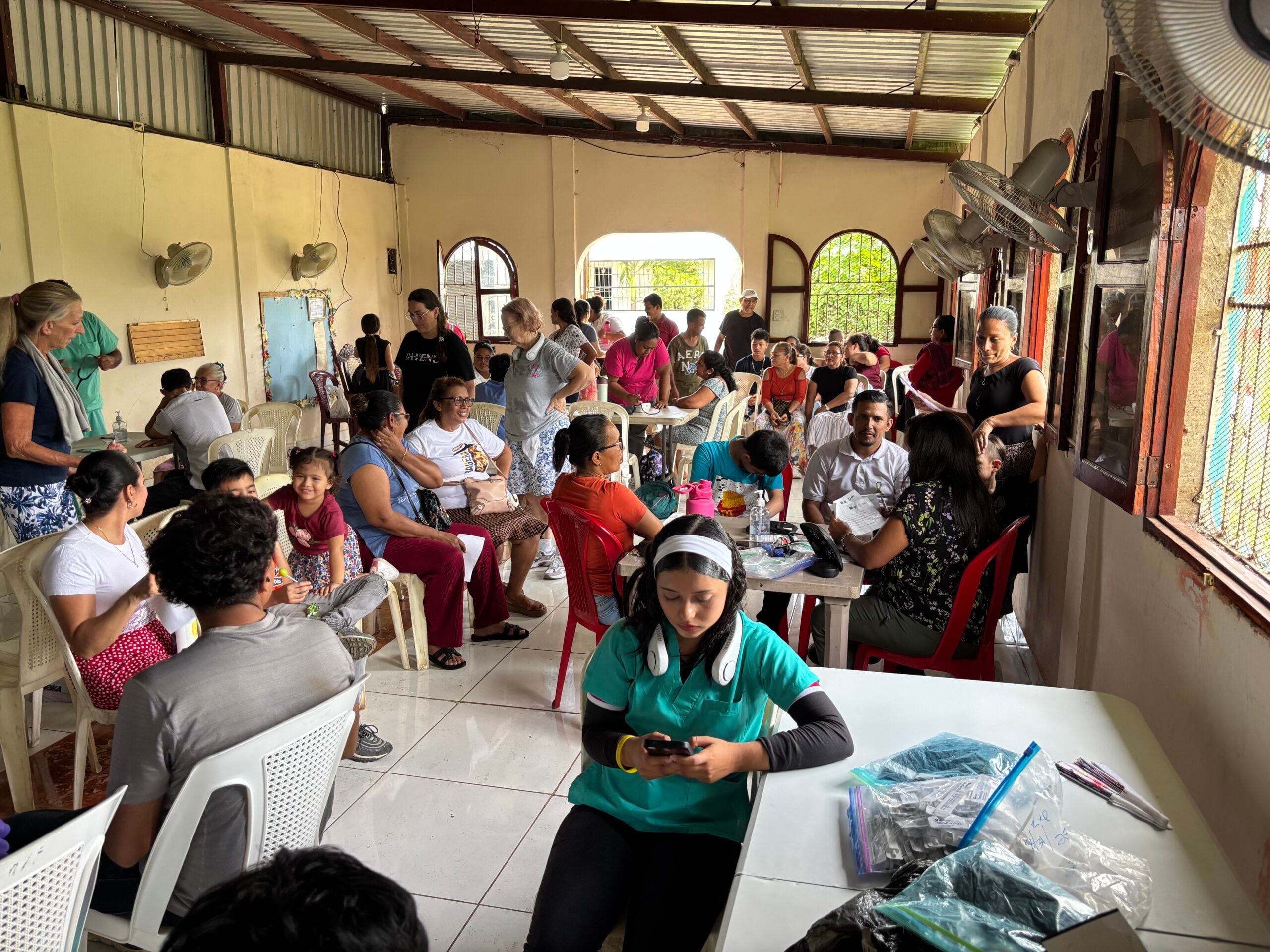
Each year, I leave behind the electronic health record, performance metrics, malpractice fears, and the ever-present hum of burnout—and lead a medical mission trip—this year to Nicaragua. Along with a team of fellow volunteers, I carry only what we can pack: a few stethoscopes, essential supplies, and the will to serve.
We set up clinics in makeshift church halls with tin roofs in remote villages. Here, medicine is stripped of everything that weighs it down in the modern world—no malpractice threats, no billing codes, no insurance battles, no endless checklists or Google reviews. There are no charts between us and our patients. No computer screens to steal our gaze. Only eye contact, open hearts, and the sacred privilege of presence.
What’s striking isn’t the lack of resources—it’s the abundance of grace. Patients wait hours in the heat, sometimes all day. But no one complains. They let the mother with the crying baby go first. They wait even when supplies run out, just to say thank you. Children hug us with no fear. Parents bless us as we leave their village, placing their hands over our hearts. They have almost nothing. Yet somehow, they possess a depth of joy, faith, and connection that many of us—with all our abundance—struggle to find.
In the absence of technology, our eyes meet theirs. There are no screens between us, no templates dictating our time. It’s just one human being caring for another. I’ve treated a two-year-old with burns, held an 18-day-old newborn, and cried with families facing terminal illness. I’ve prayed over fragile lives, laughed with grandmothers, and listened to stories that cracked me wide open. Like the one about an 8-year-old girl whose greatest joy is knocking on doors and kissing boys—shared by his grandmother through uncontrollable laughter. These moments are pure, unforgettable, and deeply human.
In Nicaragua, spirituality is part of the healing. We don’t just prescribe and diagnose—we pray, we listen, we bear witness. We honor not only the illness, but the soul behind it. This is whole-person care in its truest form.
And here’s the hardest truth: They give us more than we give them. We show up with our medical degrees and backpacks of supplies. They offer us perspective, humility, and joy. They remind us of the why behind the white coat.
We return home physically tired, emotionally full, and spiritually reawakened. This is why I keep going back. Not because they need us—but because we need them. They remind us of who we are when everything else is stripped away.
They remind us of the kind of medicine—and the kind of humanity—that still matters most.
Prasanthi Reddy is a pediatrician.




















![AI censorship threatens the lifeline of caregiver support [PODCAST]](https://kevinmd.com/wp-content/uploads/Design-2-190x100.jpg)
